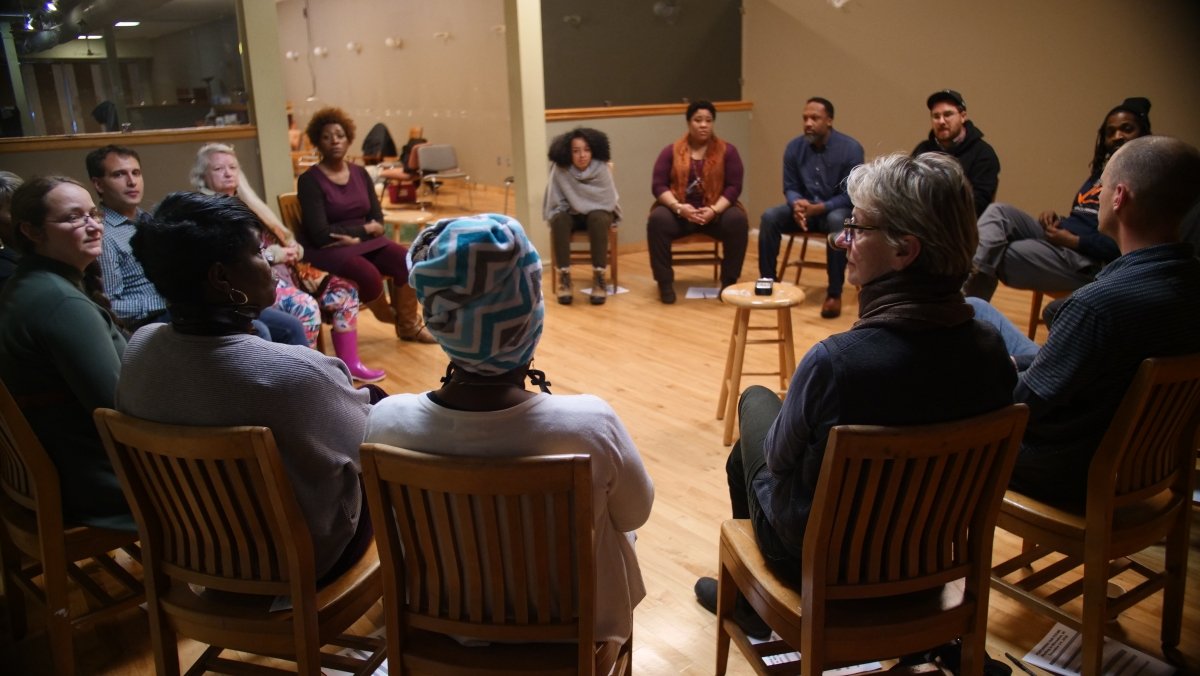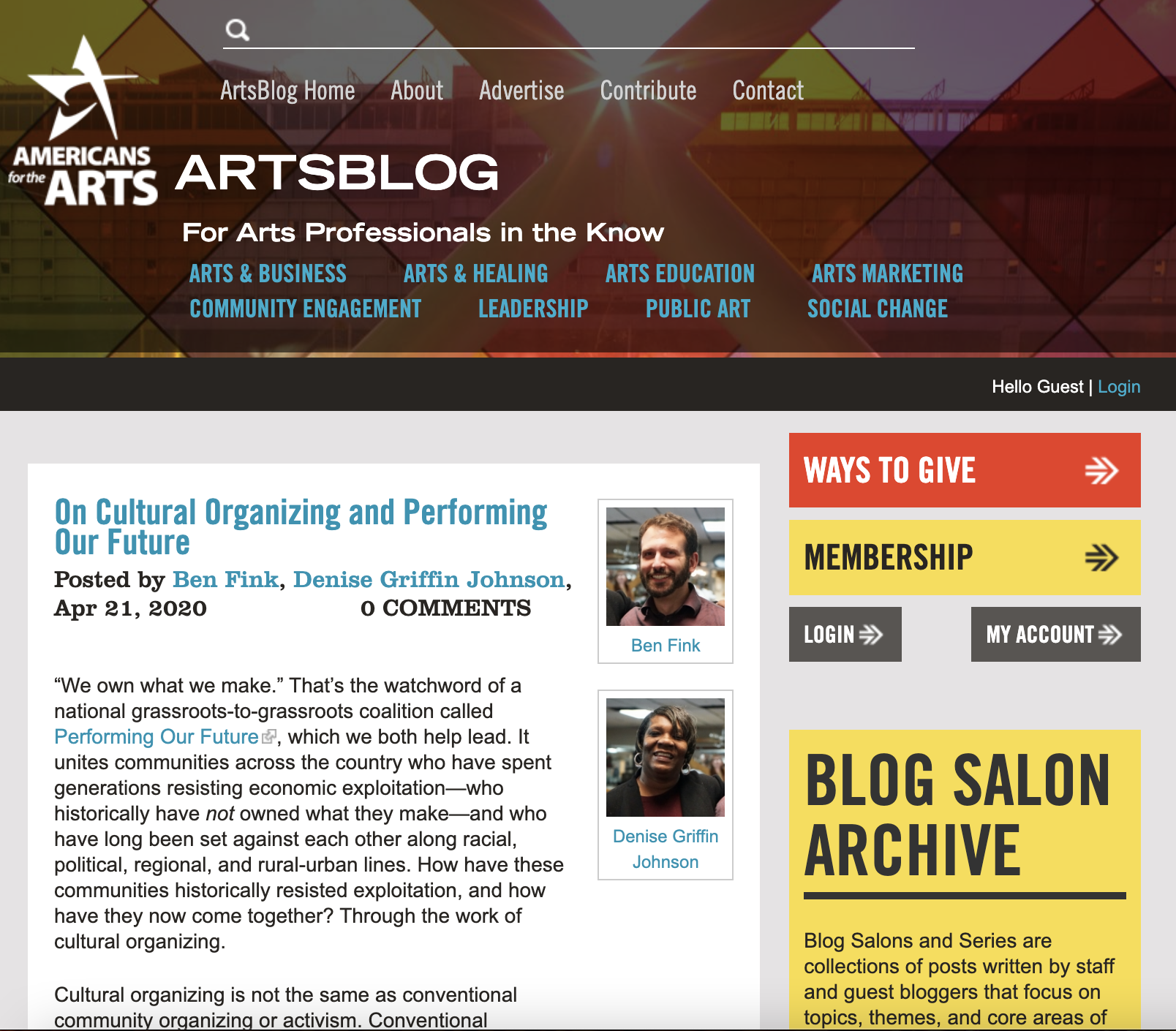On Cultural Organizing and Performing Our Future
By Ben Fink and Denise Griffin Johnson, Apr 21, 2020
Story circle. Photo by Wes Tank.
“We own what we make.” That’s the watchword of a national grassroots-to-grassroots coalition called Performing Our Future, which we both helped lead. It unites communities across the country who have spent generations resisting economic exploitation—who historically have not owned what they make—and who have long been set against each other along racial, political, regional, and rural-urban lines. How have these communities historically resisted exploitation, and how have they now come together? Through the work of cultural organizing.
Cultural organizing is not the same as conventional community organizing or activism. Conventional community organizing and activism typically work from deficits: identify what’s missing in our communities, find and mobilize the people who agree with you, call out the inequity and injustice, and fight the bad guys. In the coalfields of East Kentucky and the inner city of West Baltimore, where we work, this usually means “organizing around” problems like unemployment, drugs, or disenfranchisement. Sometimes a meeting might start with a poem, or a protest might include beautiful puppets. But that’s still not cultural organizing. Cultural organizing is more than activism-plus-art.
Yawah Awolowo and Adam Johnston of Black Belt Citizens
Like conventional organizing, cultural organizing is about building power, understood as organized people plus organized money plus organized ideas. The difference is cultural organizers organize not around problems but around projects: music concerts that reflect the contributions our communities have made to world culture, plays that retell our communities’ stories in residents’ own words, community-run businesses that employ neighbors in recovery. These projects draw on and enhance a community’s shared material, its intellectual, emotional, and spiritual richness—its commonwealth. Artists, used to being treated as outside experts and gig-entrepreneurs, join this work as neighbors, with key skills to contribute. Government officials, used to steering the conversation, join this work as equals, no greater or lesser than anyone else. Youth, elders, poor folks, and others who are used to being ignored join this work as full participants, and are fully heard.
Denise and Ben



